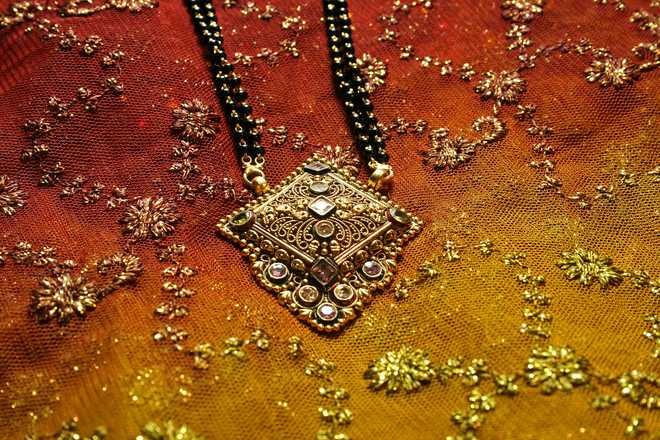Vandana Shukla
Had Lalita Dabas (27) not been married to a national-level kabaddi player, Rohit Kumar Chillar, her suicide, due to alleged dowry harassment, would have been just another figure added to the statistical data of the NCRB (National Crime Record Bureau).
Lalita hung herself at her West Delhi apartment after writing a suicide note and recording two audios, detailing the nature of her harassment. The police arrested Chillar and later his father, who pleaded innocence.
According to police sources, in one of the audio recording clips, Lalita said, Chillar had “forgotten her” after his rise as a sports star. She further added, “I want Rohit to cremate me… let him grieve… the man who brought me to this house used to beat me up and he treated me in an inhuman manner. Even his parents used to beat me… his sister abused me…”
Dowry is a shameful social evil; those who give dowry are equally responsible for promoting this evil, as are those who demand it. In the 21st century India, women enjoy equal rights on all fronts, and should be shaping their new, confident destiny. A rising number of dowry-related deaths — 24,771 deaths between 2012 and 2014, and 3.48 lakh cases of cruelty by husbands and in-laws, therefore, raise some pertinent questions; woman-friendly laws alone are incapable to resolve. As such, the conviction rate in cases related to dowry deaths is a mere 18 per cent.
These deaths are a grave reflection on the way girls are brought up in Indian families; where marriage is the ultimate medal a young woman is prepared for, and maintaining the marital status, against all humiliations wins her yet another societal approval. Such casualties are bound to happen under societal expectations. It also raises questions on the influence of popular culture that promotes regressive rituals for women to maintain their secondary status in marriage, further feeding on their low self-worth.
Lalita’s father, Karan Singh, says, he had given Chillar’s family a sedan, in the wedding, but they had demanded an SUV. In the name of maintaining old traditions, when everything around us is changing, more and more women are employed and independent, parents continue to give costly “gifts”— a euphemism for dowry — in marriage. Are these “gifts” equally matched by the groom’s side? Women rarely raise such questions.
“The first signs of distress in marriage are dismissed by the ‘elders’ as problems of adjustment. Self-appointed agony aunts accuse the estranged couples — especially women — of being too demanding, or trouble creators,” says an office-bearer of the All-India Democratic Women’s Association. The voices women hear from institutions supposed to protect them; the police and judiciary are steeped in patriarchy.
In a recent judgment, the Supreme Court stated, “Persistent effort of a wife to constrain her husband to be separated from his family” constitutes an act of ‘cruelty’ and such an effort of a wife “is a western thought, alien to our culture and ethos”. The Apex court did not think it worthwhile to spare a thought for women separated from their families; at times, under force.
Incidents that begin with domestic violence, and ignored as domestic matter, end up in tragically futile loss of lives, like Lalita’s.
A note should be taken of another incident that took place in a small village of Kolhapur district of Maharashtra. A 12-year-old girl, a student of class sixth, married under coercion to a 32-year-old widower, was forced to join her husband by her parents. She took a bus to Kolhapur, approached an NGO, to protect her dream of educating herself. In an interview later, she said, apart from education, girls need jagrukta (awakening).
It’s unlikely that 27-year-old Lalita was not educated or lacked awareness of her rights. Delhi is not a village. What made her not exercise her rights? Did her father and family members ignore the signs of her unhappiness? Why did she not make a distress call to her family; instead she chose to record a statement that underlines her sacrifice despite being harassed — “I didn’t do anything… but I don’t want anything to happen to them after my death,” though she wants her husband to “grieve.”
After much social outrage, and several statements from the courts, affirming the misuse of Section 478-A of the IPC, victims of dowry-related harassment no more enjoy affirmed legal protection. And the new amendments in the Protection of Women against Domestic Violence Act hold women equally accountable. The new laws put the onus for domestic violence on women too. They cannot continue to play the victimised party. This shift should be taken in the right spirit; as an opportunity for women to educate themselves about their rights and ways to protect their interest. After a while, persecution fixation becomes addictive for the victims; it provides a safety net of not acting against the oppressor. Many women come out of worse situations; they make use of the same laws, accorded to all.
Ironically, the fund created by the government, to help female victims of violence is called Nirbhaya (the fearless). There are several “I am Nirbhaya” sites that recount tales of brave women. The blogging world is abuzz with informative writings and talks on assertive role women play; there are regressive TV shows too to reinforce outdated societal roles for women. There are brave survivors — of acid attacks, sexual harassment and rape and there is the rising number of dowry deaths — the mismatch reflects the choices women make.
Unlock Exclusive Insights with The Tribune Premium
Take your experience further with Premium access.
Thought-provoking Opinions, Expert Analysis, In-depth Insights and other Member Only Benefits
Already a Member? Sign In Now










